Postpartum consumptive and related syndromes:an introduction of postpartum consumption due to Yin deficiency, asthenia, wind deficiency and consumptive cold, shortness of breath and hasty panting, and other related syndromes.
-
 ✵Gynecology of TCM is a branch to study the physiological and pathological characteristics of women and to prevent and treat syndromes specific to women. Gynecology of TCM research scope including irregular menstruation, amenia, metrorrhagia, infertility, postpartum syndromes, breast syndromes, and miscellaneous syndromes, etc.
✵Gynecology of TCM is a branch to study the physiological and pathological characteristics of women and to prevent and treat syndromes specific to women. Gynecology of TCM research scope including irregular menstruation, amenia, metrorrhagia, infertility, postpartum syndromes, breast syndromes, and miscellaneous syndromes, etc.
- Postpartum consumptive and related syndromes.
-
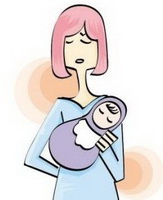
✵Postpartum consumptive and related syndromes is also known as the consumptive syndrome of women after childbirth, it is a series of consumptive and asthenia syndromes of women following the childbirth.
✦The related women consumption syndromes after childbirth are introduced: postpartum Ru Lao(postpartum consumption due to Yin deficiency), postpartum asthenia, postpartum wind deficiency and consumptive cold, postpartum shortness of breath and hasty panting, postpartum dyspneal fullness, postpartum blackness of mouth and nose, postpartum hectic fever, postpartum dry cough, postpartum tremor(trembling), women's postpartum consumption with hematemesis, postpartum blood exhaustion, postpartum consumptive thirst, etc.
✦ The pathogenic reason that leads to the women consumption, are known mostly due to Yin deficiency, deficiency or consumption hurt of Qi and blood, loss of blood, exhaustion of Ying blood, loss of body fluid, appetite not recovered, injury of Zang and Fu-viscera, deficiency of Zang and Fu viscera, asthenia and weakness, or because improper diet(dietary irregularities), hurt of the Ying and Wei system, exogenous wind and cold pathogens affections, these consumptive syndromes after childbirth normally show various symptoms of deficiency and weakness, are introduced accordingly.
✦The consumptive syndromes not directly related with childbirth are introduced in the section Women consumption..
- Postpartum Ru Lao(postpartum consumption due to Yin deficiency).
-

✵The postpartum Ru Lao is the consumption due to Yin deficiency occurring following childbirth, due to various pathogenic reasons.
✧ In the TCM system, the pathogenic reasons for the postpartum Ru Lao are normally including consumption due to Yin deficiency, deficiency in Qi and blood, appetite not recovered, deficiency and emaciation in Qi and blood, not supplemented, and affected by wind and cold pathogens. The wind pathogen combat with blood and Qi, could not warm the skin and muscle, lead to fatigue and deficiency, sudden sleep or wake up, look gaunt, food undigested. The cold and wind pathogen affects the lung system, cough and dry in mouth, dizziness and pain in joints. The Ying and Wei system is affected by wind pathogen, flow into the Zang and Fu-viscera, frequently attacks, night sweating is observed frequently, alternation of fever and cold which is similar to malaria, vexation and depression on the back and abdomen, limbs could not lift, body is heavy and prefer to lay on bed, these are the common symptoms of the Ru Lao(consumption due to Yin deficiency). Other reasons including fatigue and exhaustion muscle and strength after childbirth, overthinking and worry a lot, lead to emaciation thin and panting, fever and cold similar to malaria, headache and spontaneous sweating, fatigue and powerless of limbs, cough and throw up phlegm, colic pain in the abdomen.
✵Ancient herbalists who hold a syndrome differentiation viewpoint with similar explain of pathogenic reasons, and the relevant representative work are introduced and quoted:"A woman suffers from vexation irritable and fever, thirst but not sweating, is the condition of blood deficiency and Yin collapse, due to reasons loss excessive blood during childbirth, should be treated as heat from Yin deficiency due to bleeding..." [06].
"Among all syndromes after childbirth, the case most severe and difficult to treat, is Ru Lao, woman suffers from Ru Lao. There are two reasons of Ru Lao: one is from endogenous hurt, due to not smooth in care after childbirth, lost orders of support, or worry and thinking, hurt Zang and Fu viscera, Rong and Wei(the Ying and Wei system) are not well, lead to alternative chills and fever similar to malaria, cephalea and spontaneous perspiration(headache, spontaneous sweating), deficient emaciated panting and tired, lassitude and general fatigue;...one is from exogenous affection, rest not sufficient in days or month, Qi and blood are deficient and exhausted, affected from wind and cold, combat with Qi and blood, could not warm the skin and muscle, as a result, turn haggard and emaciation, indigestion of food and drink, nagging pain in limbs and body..." [07].Different types are introduced:
⑴.A woman suffers from Ru Lao(consumption due to Yin deficiency) after childbirth, due to endogenous hurt, improper care, lost orders of support, worry and thinking, Zang and Fu viscera are hurt, Rong and Wei are not well, alternative chills and fever similar to malaria, cephalea and spontaneous perspiration, deficient emaciated panting and tired, lassitude and general fatigue;
⑵...., due to exogenous hurt, rest not full in a month, Qi and blood are deficient and exhausted, wind and cold affection, combat with Qi and blood, could not warm the skin and muscle, haggard and emaciation, indigestion of food and drink, nagging pain in limbs and body;
⑶...., due to exogenous hurt, wind-cold affection invading the lung, the lung is affected with a mild cold, cough and dryness in mouth, dizziness and pain in the body, Ying and Wei are affected by wind, flow into Zang and Fu viscera, dazzled and night sweating, alternative chills and fever similar to malaria, nagging pain in back and arms, heavy in limbs and body;
⑷...., after the first childbirth, due to exogenous hurt, tiredness and lassitude;
⑸...., case persistent vacuity sweating;
⑹...., case cold in Zang-viscera;
⑺...., case Qi and blood are both deficient;
⑻...., case fever due to exogenous pathogens(wind, cold, etc);
⑼...., case fever due to exogenous pathogens, affection from cold, aversion to cold at the back;
⑽...., case Yang deficiency and internal cold;
⑾...., case Yang is excessive and Yin is deficient, with internal heat;"A woman suffers from Qi deficiency after the first childbirth, sit for a long period and much speech, strengths are used in movement, as a result, lead to dizziness dazzled, pains in four limbs(pains in hands, feet, arms, legs), alternative chills and fever similar to malaria, spontaneous sweating(involuntary sweating), is the syndrome of Ru Lao, it is not a cold-induced syndrome...(and, the syndrome of Ru Lao, due to various reasons, physiological disorders before childbirth, worry and anxiety, spirit is hurt internally, turn around and hurt the physical body, get hurt both internally and externally, the spirit and the physical all degraded, or due to blood and Qi not recovered after new childbirth, diet and drink not arrive at a sufficient state, irregular sleep and get up, talk too much, disorder of supplement, lost forbidden of sexual desires and intercourse, affected by wind and cold exogenously, hurt from diet and drink endogenously, gradually emaciated and thin, develop to various syndromes.)" [08].
✵The Postpartum Ru Lao(postpartum consumption due to Yin deficiency) other common types are known including:
✧ Postpartum Ru Lao(postpartum consumption due to Yin deficiency), deficiency emaciation and panting, alternating of cold and fever as malaria, pain in limbs(pain in hands, feet, arms and legs), sallow complexion(sallow yellow facial complexion).
✧ Postpartum Ru Lao(postpartum consumption due to Yin deficiency), deficiency hurt not over one hundred days after childbirth, weakness in Qi and blood, lost regulation, or hurt by overwork, observed symptoms are deficiency and emaciation, sudden wake up or sleep, indigestion of food, cough now and then, dizziness and blurred vision, night sweating, alternation of cold and fever similar to malaria, spasm or contracture on back and arm, sleepy in bed.
✧ Postpartum Ru Lao(postpartum consumption due to Yin deficiency), deficiency and emaciation, fever or cold, poor appetite(low food intake), distention in the abdomen.
✧ Postpartum Ru Lao(postpartum consumption due to Yin deficiency), deficiency and body weak, physical strength not recovered, overwork, vexation pain in limbs(vexation pain in hands, feet, arms, legs), alternation of cold and fever now and then, no appetite(no food intake, or take little food).
✧ Postpartum Ru Lao(postpartum consumption due to Yin deficiency), great deficiency after childbirth, urgent pain in the heart and abdomen, blood and Qi flow upward and affect the heart, lack of Qi and short of breath.
✧ Postpartum Ru Lao(postpartum consumption due to Yin deficiency), deficiency and emaciation after childbirth, fever and spontaneous perspiration(spontaneous sweating), combat of Qi and blood and irregular menstruation, affected by cold and fever, spontaneous sweating and emaciation thin.
✧ Postpartum Ru Lao(postpartum consumption due to Yin deficiency), after childbirth, yellow emaciation of skin and muscle(withered yellow complexion and emaciation), colorless complexion; or aversion to cold and high fever, sore pain in limbs(sore pain in hands, feet, arms and legs), vexation and headache(vexed, headache).
✧ Postpartum Ru Lao(postpartum consumption due to Yin deficiency), after childbirth, alternation of fever and cold, dizziness and blurred vision, pain in head and eyes, sore pain in joints, lack strength and emaciation.
✧ Postpartum Ru Lao(postpartum consumption due to Yin deficiency), sitting long period after childbirth, much seeing, hearing and speaking, or exhaustion of strength, pain in head, arms, limbs, skin and flesh, alternation of cold and fever.
✧ Postpartum Ru Lao(postpartum consumption due to Yin deficiency), not many days after childbirth, sit for long period and much speaking, use strength in sport, pain in head(headache, or cephalea), eyes and limbs, alternation of cold and fever similar to malaria.
✧ Postpartum Ru Lao(postpartum consumption due to Yin deficiency), panting and short of breath, emaciation and thin, colic pain in abdomen, spontaneous sweating.
- Postpartum Asthenia.
-
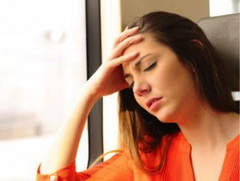
✵The postpartum asthenia is a syndrome of asthenia and weakness occurring following childbirth, due to various pathogenic reasons.
✧ In the TCM system, the pathogenic reasons for the postpartum asthenia is normally including injury of Zang and Fu-viscera, consumption hurt Qi and blood, lead to asthenia and weakness, or because of improper diet(dietary irregularities), affected by wind cold pathogen, combat with Qi and blood, entering into Zang and Fu-viscera, lead to melancholy appearance(sorrowful looks), emaciation, thus known as asthenia weakness emaciation.
✵The Postpartum Asthenia common types are known including:
✧⑴.Postpartum asthenia, weakness and emaciation, deficiency and weak of spleen stomach, myasthenia of limbs(weakness of limbs), no appetite(no food intake), distention and fullness in the heart and abdomen.
✧⑵.Postpartum asthenia, weakness and emaciation, short of breath and no appetite(no food intake, or low food intake).
✧⑶.Postpartum asthenia, weakness and consumption, deficiency and exhaustion of blood after childbirth, weakness of limbs, poor appetite(reduced food intake), weakness of blood and channels, or obstacles, lead to deficiency or excess syndromes.
✧⑷.Postpartum asthenia, weakness and consumption, short of breath, lacking in strength.
✧⑸.Postpartum asthenia, asthenia and consumption after childbirth, lacking in strength and weakness, panting and sweating, deficient pain in the abdomen.
✧⑹.Postpartum asthenia, asthenia and consumption after childbirth, emaciation, pain in the abdomen.
✧⑺.Postpartum asthenia, three years after childbirth, various syndromes relieved, weakness and lacking in strength.
✧⑻.Postpartum asthenia, emaciation, fatigue and powerless after childbirth, not recover.
✧⑼.Postpartum asthenia, blood deficiency and consumption after childbirth, night sweat, drowsiness and lacking in strength, cough with phlegm.
✧⑽.Postpartum asthenia, no other syndromes after childbirth, but self-knowing weak and deficiency, pain in the heart to abdomen, lack in strength.
✧⑾.Postpartum asthenia, no other sufferings after childbirth, but self-knowing lack in strength and deficiency in Qi, stagnant in chest and short of breath.
✧⑿.Postpartum asthenia, consumption and fatigue after childbirth, no appetite(no food intake), tired in limbs(feel tired in hands and arms,feet and legs), pains in the heart and abdomen.
✧⒀.Postpartum asthenia, emaciation and thin after childbirth, from other syndromes.
✵Ancient herbalists who hold a syndrome differentiation viewpoint with similar explain of pathogenic reasons, and the relevant representative work are introduced and quoted:✧"A woman suffers from Qi and blood deficiency after childbirth, symptoms similar to stroke, stiffness or rigidity of the body, facial paralysis(mouth and eyes), should not be treated as stroke, (it) is the condition of severe deficiency." [02].
✧ "A woman suffers from blood deficiency after childbirth, fever..." [02].
✧ "A woman suffers from hurt from diet after childbirth, fullness, and oppression in the chest, alternative fever and chills on the body, no appetite(do not want to take food)...is the condition of hurt from the diet after childbirth." [02].
✧ "Over 10 days after childbirth, a woman suffers from general fever and aversion to cold, trembling, vomit and sweating, abdominal pain, press with hand and not pains, is the condition of great deficiency or asthenia, other symptoms might be observed are diarrhea, great fever, excessive perspiration, great trembling, is the condition of severe asthenia and cold syndrome." [02].
- Postpartum wind deficiency and consumptive cold.
-
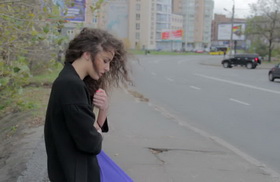
✵The postpartum wind deficiency and consumptive cold is wind deficiency and consumptive cold occurring following childbirth, usually due to various pathogenic reasons.
✧ In the TCM system, the pathogenic reasons for the postpartum wind deficiency and consumptive cold are normally including hurt and injury of Qi and blood due to childbirth, weakness of Zang-viscera and Fu-viscera and affected by wind and cold pathogens, cold pathogen combat with blood and Qi, Qi and blood could not nourish skin and muscles, lead to fatigue and lacking of strength, emaciation and not recover, if not recover in long period, wind pathogen enters into the uterus system, lead to infertility, known as consumption injury of wind-cold deficiency.
✵The Postpartum wind deficiency and consumptive cold common types are known including:
✧⑴.Postpartum wind deficiency and consumptive cold, consumption hurt and emaciation, after childbirth, no appetite(no food intake or low food intake), pain in limbs(pain in hands and arms, feet and legs).
✧⑵.Postpartum wind deficiency and consumptive cold, consumption hurt, Qi affect the heart and abdomen, pain in limbs(pain in hands and arms, feet and legs), no appetite(no food intake or low food intake).
✧⑶.Postpartum wind deficiency and consumptive cold, consumption hurt, emaciation and weakness, lacking strength in limbs(lacking strength in hands and arms, feet and legs), no appetite(no food intake or low food intake).
✧⑷.Postpartum wind deficiency and consumptive cold, consumption hurt, emaciation, pain in limbs(pain in hands and arms, feet and legs), dysphoria(vacuity vexation, restlessness of deficiency type) in mind and heart, no appetite(no food intake or low food intake).
✧⑸.Postpartum wind deficiency and consumptive cold, consumption hurt, pain in the abdomen and cold, lacking strength in legs and feet, sallow complexion(sallow yellow facial complexion), poor appetite(reduced food intake), emaciation and weak gradually.
✧⑹.Postpartum wind deficiency and consumptive cold, wind deficiency after childbirth, emaciation and consumptive weak, fewer muscles.
✧⑺.Postpartum wind deficiency and consumptive cold, consumptive hurt after childbirth, pain in joints and bones, headache, no perspiration(no sweating).
✧⑻.Postpartum wind deficiency and consumptive cold, consumptive thin of wind deficiency after childbirth, no appetite(no food intake).
✧⑼.Postpartum wind deficiency and consumptive cold, consumptive thin of wind deficiency after childbirth, emaciation and weakness, various syndromes.
✧⑽.Postpartum wind deficiency and consumptive cold, consumptive hurt of wind deficiency after childbirth, not harmonize in abdomen.
✧⑾.Postpartum wind deficiency and consumptive cold, consumptive hurt of wind deficiency after childbirth, yellow complexion and emaciation.
- Postpartum shortness of breath and hasty panting.
-

✵The postpartum shortness of breath and hasty panting is the shortness of breath and hasty panting occurring following childbirth, due to various pathogenic reasons.
✧ In the TCM system, the pathogenic reasons for the postpartum shortness of breath and hasty panting are loss of blood for childbirth, exhaustion of Ying blood, Wei Qi lost master and accumulated in the lung solely, lead to panting. This is the case of sole Yang and exhaustion of Yin, difficult to treat. In case lochiorrhea, residue blood stagnant and accumulated, flow upward to the lung, lead the hasty panting too.
✵The postpartum shortness of breath and hasty panting common types are known including:
✧ Postpartum shortness of breath and hasty panting, residue blood counter flow upward and affect the lung, hasty panting.
✧ Postpartum shortness of breath and hasty panting, affected by wind and cold pathogen, or affected by sorrow and anger, or affected by appetite and cold food.
✧ Postpartum shortness of breath and hasty panting, loss excess blood and Ying blood exhaustion, depression and vexation.
✧ Postpartum shortness of breath and hasty panting, affected by wind, cold, heat, dampness, cough and fullness panting, phlegm and saliva stagnant and excess, uneasy in sitting and sleep.
✧ Postpartum shortness of breath and hasty panting, blood enter into the lung after childbirth, blackish complexion(face turn black), panting and want to die.
✵Ancient herbalists who hold a syndrome differentiation viewpoint with similar explain of pathogenic reasons, and the relevant representative work are introduced and quoted:"Long days after childbirth, a woman suffers from deficiency and panting, or take many decoctions but still panting...is the condition of postpartum panting of deficiency..." [02].
"Not careful after childbirth, a woman take bath too early, water Qi entering into the abdomen, symptoms are fullness of abdomen and panting, or take moxibustion and heat entering into the abdomen, distension and panting..." [02]."In case of postpartum breath, short of breath and similar to panting, or might be misdiagnosed as phlegm-fire, and used recipe functions dissipating Qi and eliminating phlegm, mistakenly and seriously... In case after childbirth, a woman suffers from blood deficiency and Qi exhaust, breath short and rapid, speech discontinued, similar to panting and in risks...no need to ask questions and self-knowing it." [03].
"A woman suffers from panting after childbirth, there are cases no cold pathogen in the lung but only observe panting, is due to blood loss and Yin deficiency, sole Yang lost regulation, as a result, Qi exhaustion and short of breath, are symptoms deficiency and hurt of the liver and kidney, ...deficiency and will collapse, are all symptoms of a danger case..." [07].Different types are introduced:
⑴.A woman suffers from panting after childbirth, panting not due to cold in the lung, loss blood and Yin deficiency, Qi exhaustion and short of breath, deficiency and hurt of the liver and kidney, is a difficult case and in danger.
⑵.A woman suffers from panting after childbirth, panting, Qi deficiency and cold;
⑶.A woman suffers from panting after childbirth, panting, affection from exogenous wind and cold, pathogen attack the lung and panting;
⑷.A woman suffers from panting after childbirth, panting, cold pathogen invading the lung, Qi excess stagnancy but primordial essence not deficient;"Panting after childbirth: a woman suffers from blood collapse and (panting due to) sole Yang upward floating(upward floating of Yang in deficiency syndrome) is a risk case, ...a woman suffers from panting due to blood stasis flow upward, purple-red complexion(looks purple-red on face), ..." [09].
✵The postpartum shortness of breath and hasty panting, is also due to pathogenic reasons weakness, affection from wind and cold pathogen, blood stasis accumulated in the lung and spleen.
✵Ancient herbalists who hold a syndrome differentiation viewpoint with similar explain of pathogenic reasons, and the relevant representative work are introduced and quoted:"A woman suffers from sudden panting after childbirth, what is it? This is a condition in danger. Weakness and deficiency after childbirth, not avoid wind and cold then got affected by them, also blood stasis accumulated in the lung and the spleen viscera..." [04].
"Panting and dyspnea after childbirth: a woman lose much blood after childbirth, sudden exhaust of Ying blood, the Wei Qi lost mastering, accumulated in the lung solely, as a result, panting. This case is very difficult..." [08].Different types are introduced:
⑴.A woman loses much blood after childbirth, the sudden exhaust of Ying blood, the Wei Qi lost regulation and accumulated in the lung solely, panting, it is a case very difficult to treat;
⑵.A woman is affected by wind and cold after childbirth, pathogen invading the lung and panting, breath roughly and distention in the chest, or much cough, different from short of breath similar to panting;
⑶.A woman is affected by cold pathogen after childbirth, invading the lung, Qi excess and stagnancy, no constitutional deficiency;
⑷.A woman suffers from residue blood entering into the lung, red-black complexion(looks red and black on face), panting and desire to die, it is a case very difficult to treat;"Panting after childbirth: a woman suffers from blood collapse and (panting due to) sole Yang upward floating(upward floating of Yang in deficiency syndrome) is a risk case, ...a woman suffers from panting due to blood stasis flow upward, purple-red complexion(looks purple-red on face), ..." [09].
- Postpartum dyspneal fullness.
-

✵The postpartum dyspneal fullness is the dyspneal fullness, or panting and fullness in the chest occurring following childbirth, its different symptoms from hasty panting is that not only panting but also feel fullness in the chest, it is also known as Chuan Man(dyspneal fullness), it not only affects after childbirth.
✧ In the TCM system, the pathogenic reasons for the postpartum dyspneal fullness are normally including deficiency and weakness of the lung Qi, deficiency of the spleen, Qi binding due to seven emotions, depression binding of the spleen, deficiency and weakness of the spleen, excessive fire in the lung, deficiency of the kidney water, deficiency of the primordial Yang.
✵Ancient herbalists who hold a syndrome differentiation viewpoint with similar explain of pathogenic reasons, and the relevant representative work are introduced and quoted:"Dyspneal fullness: as Qi Bo said, walk at night and panting comes from the kidney, the excessive Qi(Yin Qi) hurt the lung. In case fearsome of dropping, panting comes from the liver, the excessive Qi hurt the spleen. In case frightened and feared, panting comes from the lung, the excessive Qi hurt the heart. In case a woman fall in the water when crossing a river, panting comes from the kidney and the bones. All due to exogenous pathogens." [05].Different types of dyspneal fullness are introduced:
⑴.Tai Yang syndrome, pulse is floating, no perspiration and panting;
⑵.Yang Ming syndrome, sweating and fullness in abdomen, panting and hotflash; Exterior syndrome is not relieved, panting rapidly and sweating; Slightly panting; Perspired and panting;
⑶.Panting due to cold affection and hidden heat;
⑷.Panting due to Qi depression with excess phlegm;
⑸.Panting and much saliva;
⑹.Could not sleep and panting;
⑺.Alternative chills and fever, panting;
⑻.Reverse cold in limbs(cold in hands, feet, arms, legs), pulse and breath are sinking and fine, or cunkou is large and chizhong is small, distension in chest and cold sweating, frequent defecation, rapid panting, is the condition of Yin syndrome with extreme deficiency and coldness.
⑼.Panting and fullness due to lung Qi deficiency and weak;
⑽.Panting and fullness due to spleen deficiency;
⑾.Panting and fullness due to seven emotions binding;
⑿.Panting and fullness due to spleen depression binding;
⒀.Panting and fullness due to spleen deficiency and weak;
⒁.Panting and fullness due to excess fire in the lung;
⒂.Panting and fullness due to kidney water decline.
- Postpartum Hectic Fever.
-
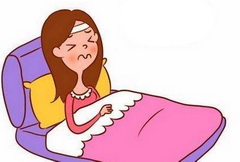
✵The postpartum hectic fever is the hectic fever, or bone steaming occurring following childbirth, self-knowing body heat, and heat in-depth, as if evaporation from the bone marrow and not easy to relieve, so it is commonly known as "bone steaming", it is due to various pathogenic reasons and majorly due to Yin deficiency. In the condition of hectic fever or bone steaming, the body temperature value tested from a thermometer is "normal".
✧ In the TCM system, the pathogenic reasons for the postpartum hectic fever are normally including Yin deficiency, loss of body fluid, loss of blood, Qi deficiency and kidney deficiency.
✵Ancient herbalists who hold a syndrome differentiation viewpoint with similar explain of pathogenic reasons, and the relevant representative work are introduced and quoted:"Case after childbirth, a woman suffers from hectic fever due to Yin deficiency and bone steaming, or excess heat in the region above the diaphragm." [03].
- Postpartum blackness of mouth and nose.
-
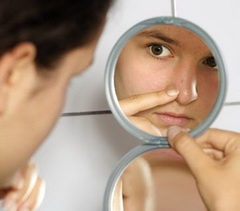
✵The postpartum blackness of mouth and nose is a case of the blackness of mouth and nose occurring following childbirth, due to various pathogenic reasons.
✧ In the TCM system, the pathogenic reasons for the postpartum blackness of mouth and nose is normally including exhaustion of Qi and blood after childbirth, irregularity of Ying and Wei, dissipating and enter into meridians in chaotic orders, not flow back regularly, lead to black nose and might turn to nose bleeding, for the deficiency heat after childbirth, this syndrome is very difficult or nearly could not be treated, it is a case of stomach exhaustion and lung collapse.
✵Ancient herbalists who hold a syndrome differentiation viewpoint with similar explain of pathogenic reasons, and the relevant representative work are introduced and quoted:"There are four kinds of incurable syndromes after childbirth: a woman suffers from black Qi from mouth and nose, nose bleeding, is the condition of stomach exhaustion and lung collapse, is the first incurable syndrome; a woman suffers from dyspnea with rapid respiration, suddenly sounds like cat miaow, is the condition of residue blood affecting the heart, is the second incurable syndrome; a woman suffers from dry and yellowish complexion(looks shallow and yellow face), the whole body color is Ye Hei(brownish purple), is the third incurable syndrome; not over a month after childbirth, a woman is hurt from exhaustion due to sexual indulgence, excessive indulgence, as a result, stiffness of the low back and spasm of muscles, opisthotonos(severe spasm in which the back arches and the head bends back and heels flex toward the back), is the fourth incurable syndrome..." [06].
"Postpartum black Qi rises from the nose and black tongue: case black Qi rises from nose and nose bleeding, is difficult to treat...cyanotic and black, is the collapse Qi of Yin and cold... And nose bleeding, Yang collapse and Yin exhaust, ...as a result, incurable... In case tongue color is purple-black, ...incurable." [08].
- Postpartum dry cough.
-
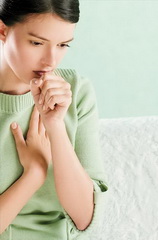
✵The postpartum dry cough is a case of the dry cough occurring following childbirth, due to various pathogenic reasons.
✧ In the TCM system, the pathogenic reasons for the postpartum dry cough are normally including loss of excessive blood, blood insufficiency with excessive fire, etc.
✵Ancient herbalists who hold a syndrome differentiation viewpoint with similar explain of pathogenic reasons, and the relevant representative work are introduced and quoted:"A woman suffers from dry cough after childbirth, what is it? This is the condition loss of excessive blood, blood insufficiency with excessive fire. If she needs to breastfeed a baby, there is no breast milk in a longer period. If no need to breastfeed a baby, still dry cough and body fever, it will develop to consumption and fear." [04].
- Postpartum tremor(trembling).
-
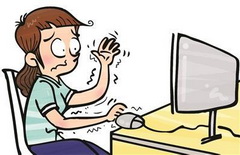
✵The postpartum tremor is a syndrome characterized by involuntary shaking or trembling of the head or hands occurring following childbirth, due to various pathogenic reasons. It is also known as postpartum trembling or postpartum shaking.
✧ In the TCM system, the pathogenic reasons for the postpartum tremor(trembling) are normally including deficiency and hurt of Qi and blood, the wind is generated from excessive deficiency fire.
✵Ancient herbalists who hold a syndrome differentiation viewpoint with similar explain of pathogenic reasons, and the relevant representative work are introduced and quoted:"A woman suffers from trembling and shaking after childbirth, is due to deficiency and hurt of Qi and blood, deficiency fire is excessive and generate wind, should not be treated as a wind syndrome..." [05].
- Postpartum consumption with hematemesis.
-
✵The women's postpartum consumption with hematemesis is a syndrome of hematemesis occurring after childbirth, mainly due to deficiency and consumption, internal heat, and fever. Symptoms normally are cough and hematemesis(spit blood) or cough blood, nose bleeding. It is introduced in the section Women concumption with hematemesis..
- Postpartum blood exhaustion.
-
✵The women's postpartum blood exhaustion is a syndrome loss much blood after childbirth, as a result blood exhaustion. It is also known as Xue Tuo(blood exhaustion, or blood collapse).
✵Ancient herbalists who hold a syndrome differentiation viewpoint with similar explain of pathogenic reasons, and the relevant representative work are introduced and quoted:"A woman lose excessive volume of blood after childbirth, often lead to blood exhaustion..." [07].
- Postpartum consumptive thirst.
-

✵The women's postpartum consumptive thirst is a syndrome of frequent drinking and urination after childbirth. Its main symptoms are dry mouth, short of breath, thirst, and want to drink up a cup of water, but drink water normally could not quench thirst at all. It is also known as Chan Hou Xiao Ke(consumptive thirst after childbirth, or wasting thirst after childbirth).
✵Ancient herbalists who hold a syndrome differentiation viewpoint with similar explain of pathogenic reasons, and the relevant representative work are introduced and quoted:"A woman suffers from Xu Ke(deficient thirst) after childbirth, surely dryness in the mouth and short of breath, weakness of feet, dizziness and dazzled;... In case of Da Xiao Ke(severe consumptive thirst), drink water and could not stop, due to body fluid withered and fire dryness arrive at an extreme state..." [07].Different type are introduced:
⑴.A woman suffers from deficient thirst after childbirth, dryness in the mouth and short of breath, weakness of feet, dizziness and dazzled; This is a mild type case so it is known as Xu Ke(deficient thirst);
⑵.A woman suffers from severe consumptive thirst, drink water and could not stop, due to body fluid withered and fire dryness arrive at an extreme state; This is a severe type case and known as Da Xiao Ke(severe consumptive thirst).
References:
-
- 01.Postpartum consumptive and related syndromes:an introduction of postpartum consumption due to Yin deficiency, asthenia, wind deficiency and consumptive cold, shortness of breath and hasty panting, and other related syndromes.
- 02.Song Shi Nǚ Ke Cuo Yao(the Synopsis of Song's Gynaecology).By 宋林皋(Sòng Lín Gāo)[Ming].
- 03.Jiēzhāi Gōng Tāi Chǎn Yī àn(Births Cases of Jie Zhai Gong).By 王纶(Wáng Guān)[Ming].
- 04.Fù Kē Bǎi Biàn(the Differentiations in Hundred Syndromes of Gynaecology).By 庄履严(Zhuāng Lǚyán)[Ming].
- 05.Nǚ Ke Bǎi Xiào Quán Shū(the Efficacious Complete Book of Gynaecology).By 龚居中(Gōng Jūzhōng)[Ming,1630].
- 06.Huang Shi Nǚ Ke(the Synopsis of Huang's Gynaecology).By 黄彦荣(Huáng Yànróng)[Ming,1504].
- 07.Ye Shi Nǚ Ke Zhèng Zhì(the Syndromes and Therapeutics of Ye's Gynaecology).By 叶桂(Yè Guì)[1817].
- 08.Fù Kē Bèi Kǎo(the References of Gynaecology).By 何应豫(Hé Yīngyù)[1820].
- 09.Fù Kē Liáng Fāng(the Effective Prescription of Gynecology).By 何梦瑶(Hé Mèngyáo)[1751].
